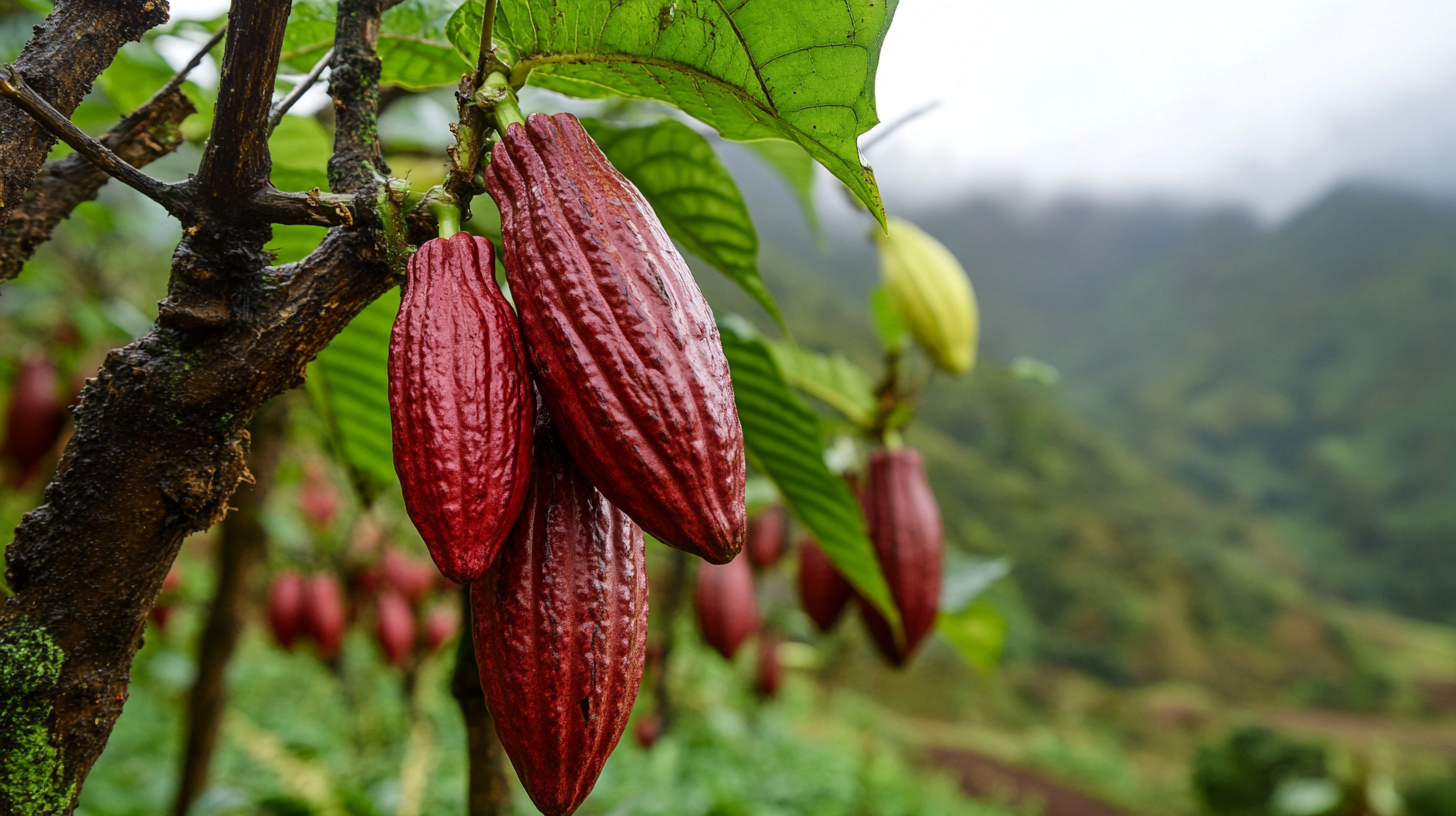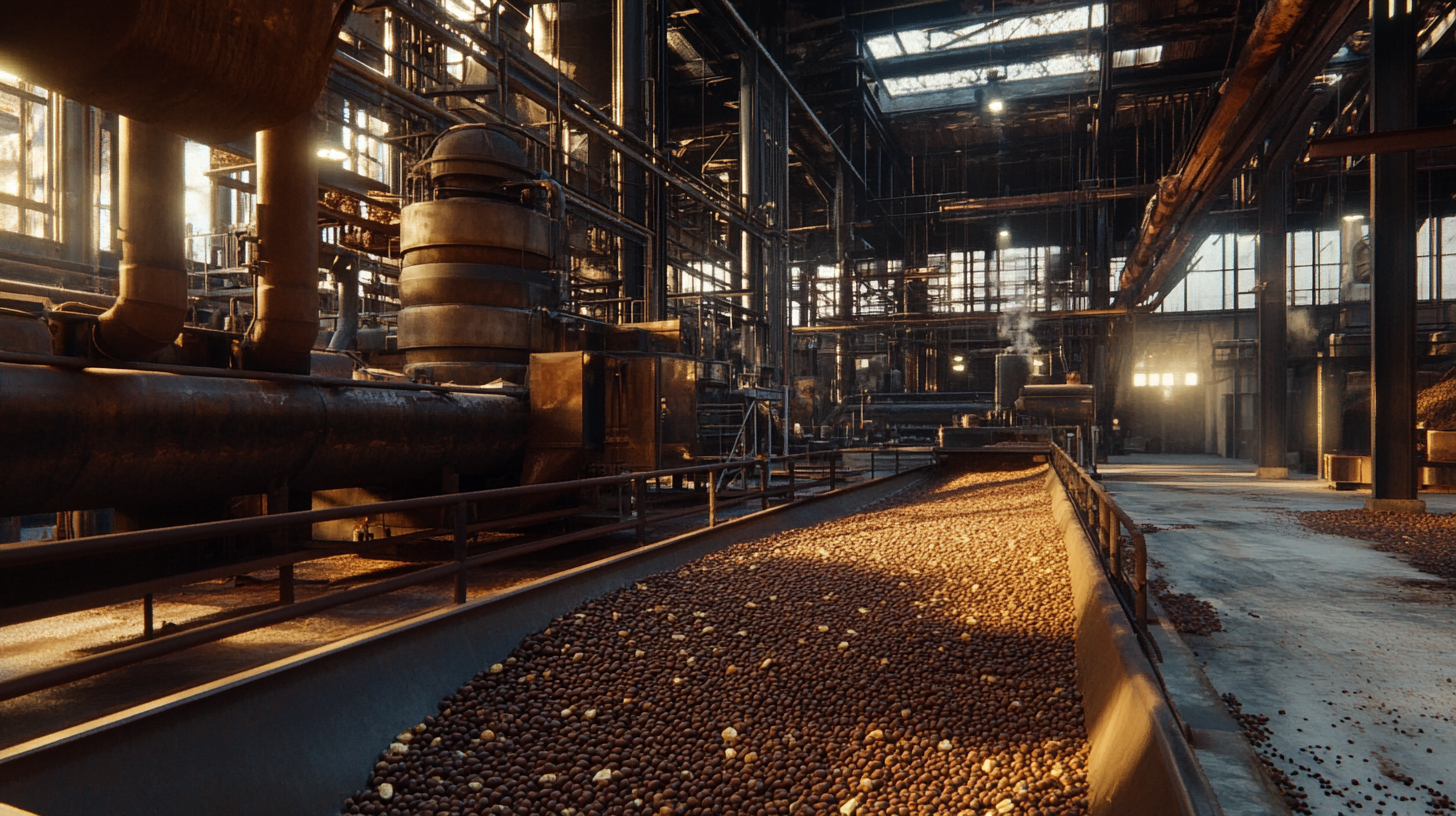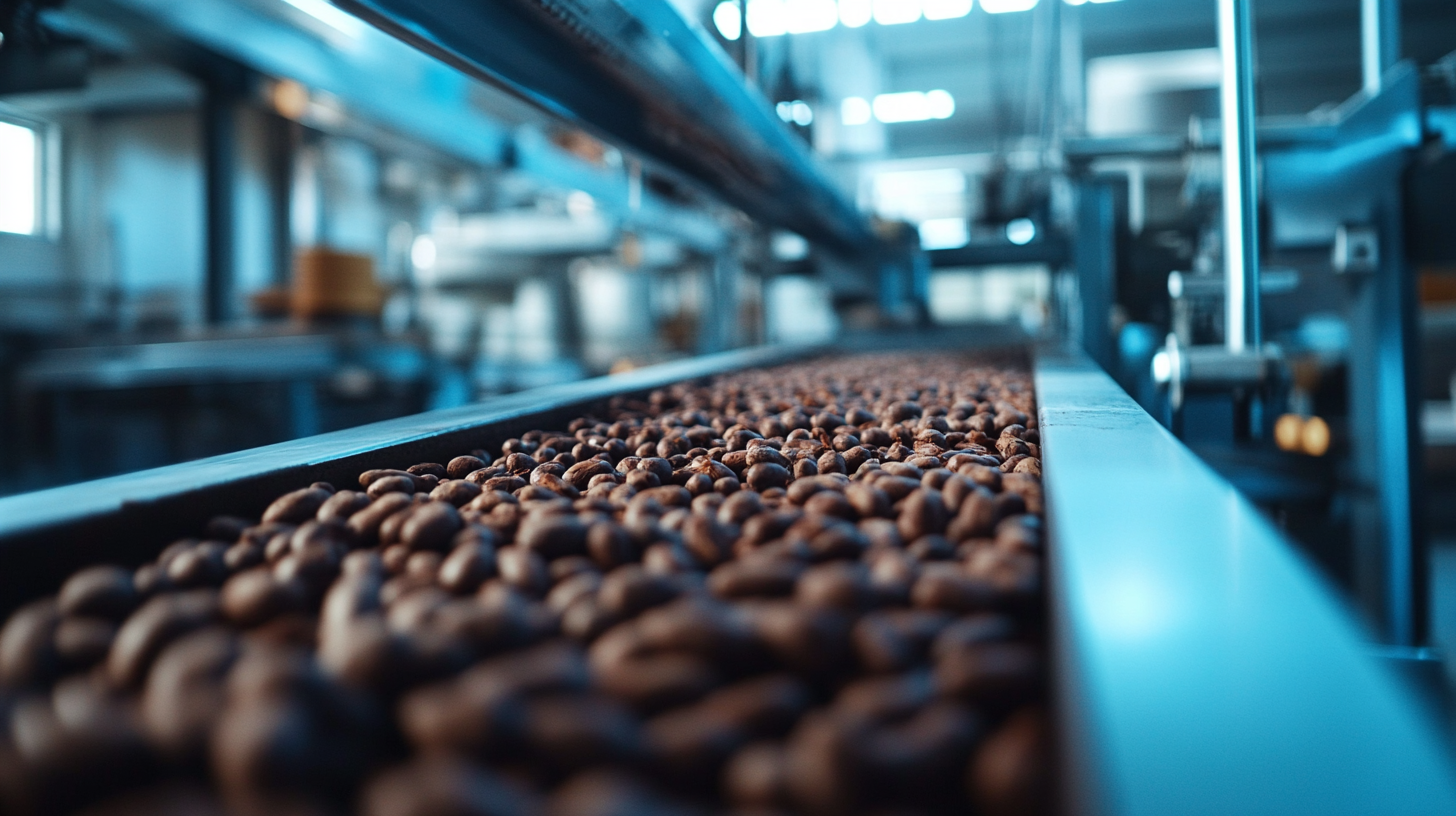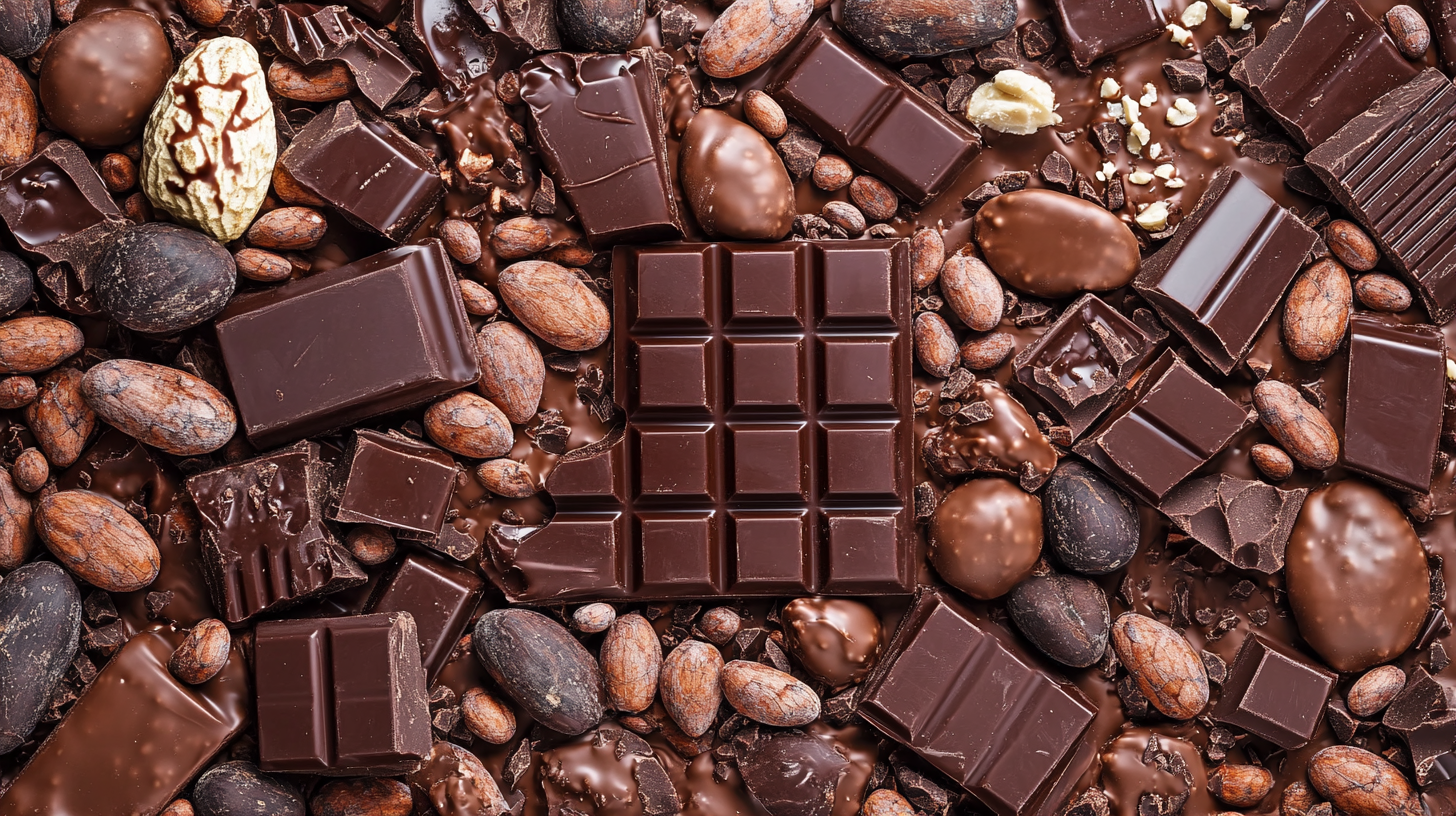What is the Essential Role of Cocoa Beans Processing Machines in the Chocolate Industry
The chocolate industry has witnessed significant growth in recent years, with global consumption projected to reach approximately 7.7 million metric tons by 2024, according to market research reports. As demand rises, manufacturers are faced with the challenge of improving efficiency and maintaining high-quality production standards. Central to this process is the role of Cocoa Beans Processing Machines, which serve as the backbone of chocolate manufacturing, transforming raw cocoa beans into the key ingredients necessary for producing delicious confections. The efficiency and technological advancements of these machines have become vital in meeting the dynamic needs of this lucrative market.
In addition to facilitating higher throughput, Cocoa Beans Processing Machines are essential for ensuring the consistent quality of the final product. With the growing preference for premium chocolates, manufacturers require equipment that can minimize processing time while preserving the delicate flavors and aromas of cocoa beans. Reports indicate that better processing techniques can increase yield and reduce waste, providing significant cost advantages. As the industry evolves, the importance of investing in high-quality processing machinery cannot be overstated, as it directly influences both production efficiency and product quality in the competitive global chocolate landscape.

The Journey of Cocoa Beans: From Farm to Factory
The journey of cocoa beans from farm to factory is a complex narrative that highlights the essential role of processing machines in transforming raw materials into the delectable chocolates that delight our taste buds. The cocoa beans begin their life on farms, particularly in regions like Côte d'Ivoire, where they are carefully cultivated and harvested by local farmers. This initial stage is crucial, as the quality of the cocoa beans directly affects the end product. As farmers work to improve their yields and quality, innovations in processing methods are becoming increasingly important. Once harvested, these beans embark on a transformative journey that involves multiple processing stages, including fermentation, drying, and roasting. This is where cocoa bean processing machines come into play, efficiently managing these steps to ensure a consistent and quality product. Recent advancements in technology have made it possible to streamline this process, allowing cocoa businesses to maintain competitive advantages in the global market. For instance, digital certification initiatives are shortening the journey from Ivorian farms to European chocolate factories, demonstrating the interconnectivity of modern cocoa trade. Moreover, artisan chocolate makers around the world are increasingly emphasizing the bean-to-bar method, allowing consumers to trace the origin of their chocolate. This shift not only enhances transparency but also supports sustainable practices in cocoa farming. As seen in various global initiatives, such as partnerships with chocolate producers and educational trips for students, the entire cocoa ecosystem is evolving. At every point in its journey, from the diligent farmers to the innovative processing machines, cocoa beans are not just a commodity; they are a symbol of cultural richness and economic potential.

Key Machines Involved in Cocoa Bean Processing
Cocoa bean processing machines play a crucial role in the chocolate industry, ensuring the transformation of raw cocoa beans into the beloved product enjoyed worldwide. Among the key machines involved in this intricate process are the cocoa bean roasters, winnowers, grinders, and conching machines. Each of these machines contributes to the unique flavor and texture that distinguishes high-quality chocolate.
Cocoa bean roasters are the first step in processing, as they are responsible for enhancing the beans' flavor through controlled heating. According to a market report by Research and Markets, the global cocoa processing market is projected to reach USD 4.7 billion by 2026, driven in part by the growing demand for premium chocolates. The roasting process can significantly affect the final taste of the chocolate, making it essential for manufacturers to invest in high-quality roasting machinery.
After roasting, the beans must be winnowed to separate the nibs from their shells. Winnowers utilize airflow technology to efficiently remove the outer shell and ensure that only the valuable cocoa nibs proceed to the grinding stage. This is a critical step, as the nibs contain cocoa solids and cocoa butter, which are essential for chocolate production. The efficiency of winnowers can have a direct impact on yield, with optimal machines reducing waste significantly, leading to cost savings for producers.
Finally, the ground cocoa nibs undergo conching, a process vital for developing the chocolate’s smooth texture. Conching machines continuously mix and aerate the chocolate mixture, refining its consistency and enhancing flavor through the reduction of acidity. According to the International Cocoa Organization, the demand for chocolate is expected to grow by 2.5% annually, making advanced conching technology increasingly important for manufacturers seeking to meet consumer expectations for quality and flavor. The integration of these machines in cocoa processing not only boosts production efficiency but also ensures that the final product meets the high standards that chocolate lovers demand.

The Impact of Automation on Chocolate Quality and Production
The chocolate industry has undergone significant transformations in recent years, predominantly driven by advancements in automation. As companies look to streamline their processes and enhance product quality, cocoa beans processing machines have emerged as essential tools in this shift. Automation not only increases efficiency but also allows for consistent monitoring and control over each stage of chocolate production, from grinding cocoa beans to conching and tempering.
One of the most notable impacts of automation on chocolate quality is the ability to precisely control temperature and timing. Automated machines equipped with sophisticated sensors ensure that cocoa beans are processed at optimal conditions, preserving their natural flavor and aroma. This level of control minimizes human error, which can lead to variations in taste and texture. Furthermore, automation allows for continuous production, reducing downtime and ensuring a steady supply of high-quality chocolate products.
Another critical aspect of automation is its role in maintaining hygiene and safety standards. Automated processes reduce human handling, which decreases the risk of contamination in food production. By utilizing machines that can be easily cleaned and sanitized, manufacturers can uphold stringent quality controls, leading to healthier products that meet the demands of increasingly health-conscious consumers. In this way, the integration of cocoa beans processing machines not only influences the efficiency of production but also plays a vital role in enhancing the overall quality of chocolate.

Sustainability Considerations in Cocoa Bean Processing Machines
The chocolate industry is increasingly recognizing the importance of sustainability in every stage of production, particularly in the processing of cocoa beans. According to a report by the World Cocoa Foundation, over 70% of the world's cocoa is sourced from smallholder farmers, many of whom use environmentally detrimental practices. The role of cocoa beans processing machines, therefore, extends beyond efficiency and productivity; it becomes crucial in promoting sustainable methods that reduce carbon footprints and support fair trade.
Modern cocoa processing machines are designed to optimize energy consumption and minimize waste. For instance, advanced cocoa butter press systems can recover up to 95% of the cocoa butter from the beans, leading to less product loss and more efficient resource use. The integration of automation and IoT technology in these machines allows for real-time monitoring, which helps manufacturers assess their environmental impact and make necessary adjustments. As highlighted by the International Cocoa Initiative, sustainability in processing can directly enhance product quality, appealing to a growing segment of consumers who prioritize ethical sourcing.
Furthermore, the shift towards biodegradable and eco-friendly materials in manufacturing cocoa processing equipment cannot be overlooked. Reports suggest that machines made from recycled materials or designed for easy disassembly for recycling purposes can significantly lower overall environmental impact. By embracing these innovations, the cocoa industry can align with global sustainability goals while also meeting consumer demand for more responsible products.
Future Trends in Cocoa Bean Processing Technology
The cocoa bean processing technology is evolving rapidly, driven by innovation and the need for sustainability in the chocolate industry. As consumer preferences shift towards artisanal and ethically sourced chocolates, processing machines are becoming increasingly sophisticated. Future trends indicate a greater integration of automation in cocoa processing, enhancing efficiency and consistency while reducing labor costs. Advanced robotics can streamline the sorting and roasting processes, ensuring that every bean is treated with precision for optimal flavor extraction.
Additionally, the rise of eco-friendly practices is shaping the development of cocoa processing machines. Manufacturers are focusing on energy-efficient systems that minimize waste and use sustainable materials. Technologies such as energy recovery systems and water recycling processes are being integrated into processing lines, allowing for a greener footprint in chocolate production. This shift not only appeals to environmentally conscious consumers but also aligns with the industry's goal of reducing its overall carbon impact.
Moreover, the use of data analytics and IoT in cocoa processing is expected to rise significantly. By utilizing machine learning algorithms, processors can predict quality variations and streamline their operations. This level of insight enables producers to optimize every stage, from fermentation to final packaging, ensuring a premium product that meets modern market demands. As the industry continues to evolve, the essential role of cocoa bean processing machines will remain pivotal in delivering quality chocolate while embracing future trends in technology and sustainability.

